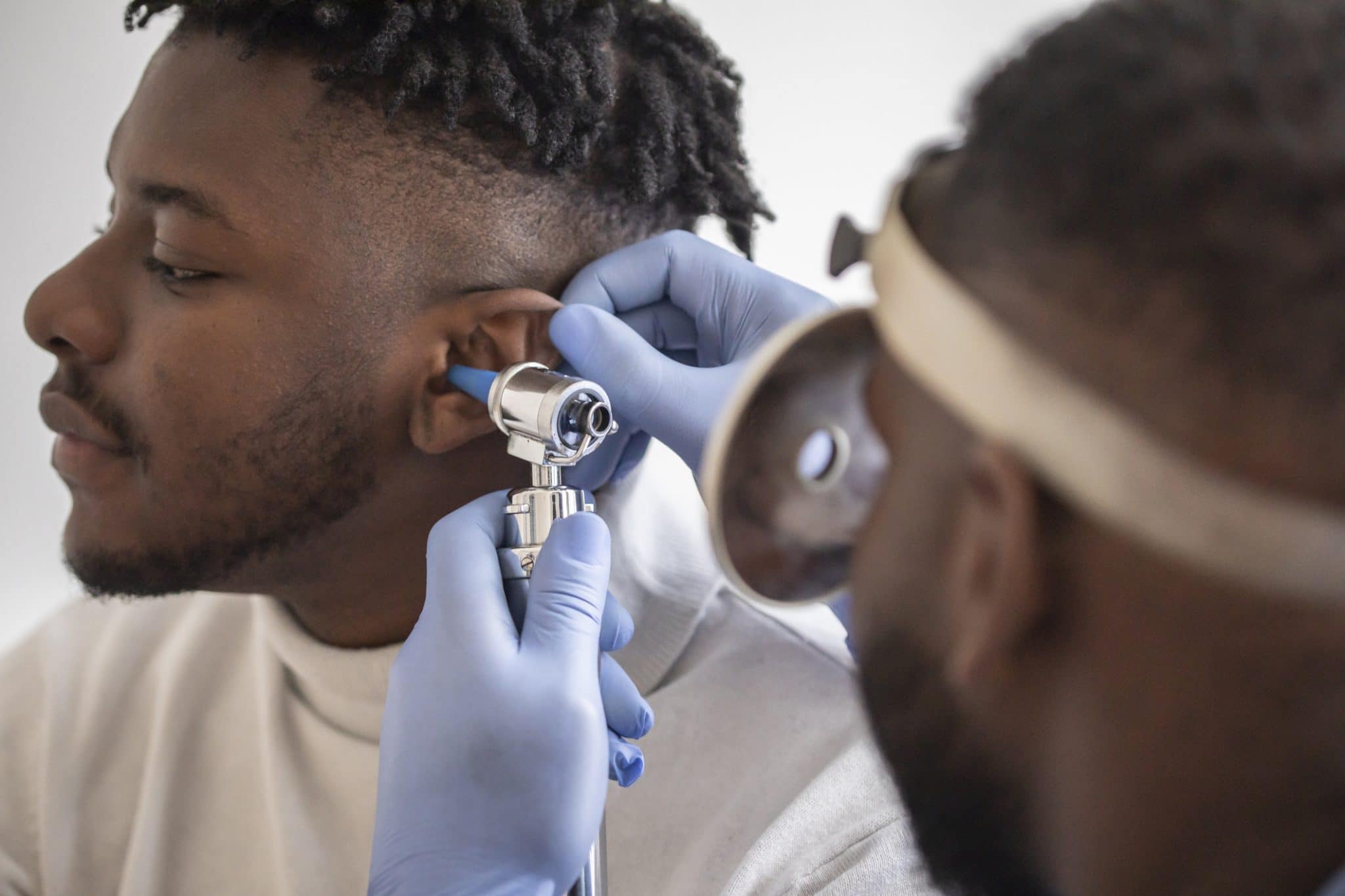Ear infections are common in young children. In fact, the National Institutes of Health reports that five out of six children will experience an ear infection before their third birthday. However, there’s another population that is also prone to frequent ear infections: those with allergies. We review this connection below.
How Do Allergies Cause Ear Infections?

It all comes down to the Eustachian tubes. The Eustachian tubes connect the middle ears to the back of the throat. Their job is to allow fluid to drain from the middle ears and to allow air pressure to equalize between the middle ear and the environment.
The reason children experience more frequent ear infections than adults is because their Eustachian tubes are shorter and more horizontal, meaning fluid cannot drain as easily.
For people with allergies, an allergic reaction leads to inflammation. This inflammation primarily occurs in the nasal and sinus passageways, but can also occur in the Eustachian tubes. When this happens, the tubes become blocked, fluid becomes trapped in the middle ear and bacteria has the chance to grow.
The same thing happens when you get a virus, like the common cold.
Treating Allergies
You can treat allergies to prevent ear infections. Some of the most effective ways include:
- Practicing avoidance of known allergens by staying indoors when pollen counts are high, showering and changing after going to Sesquicentennial Park, keeping pets out of bedrooms, using allergen-proof bedding and installing a portable HEPA filter.
- Taking over-the-counter allergy medications, including antihistamines, decongestants and steroid nasal sprays.
- Undergoing immunotherapy, a long-term allergy solution that works by desensitizing your immune system to certain allergens.
Treating Ear Infections
If you do get an ear infection, there are ways to find relief both at home and from a doctor.
At home, you can:
- Apply a warm compress to the affected ear.
- Take an over-the-counter pain reliever.
- Take an over-the-counter decongestant.
- Use eardrops.
- Avoid sleeping on the affected ear.
A doctor may:
- Prescribe antibiotics if the infection doesn’t clear on its own.
- Recommend surgically-placed ear tubes.
For more information about managing allergies or ear infections or to schedule an appointment, call Lake Jackson ENT & Med Spa today.